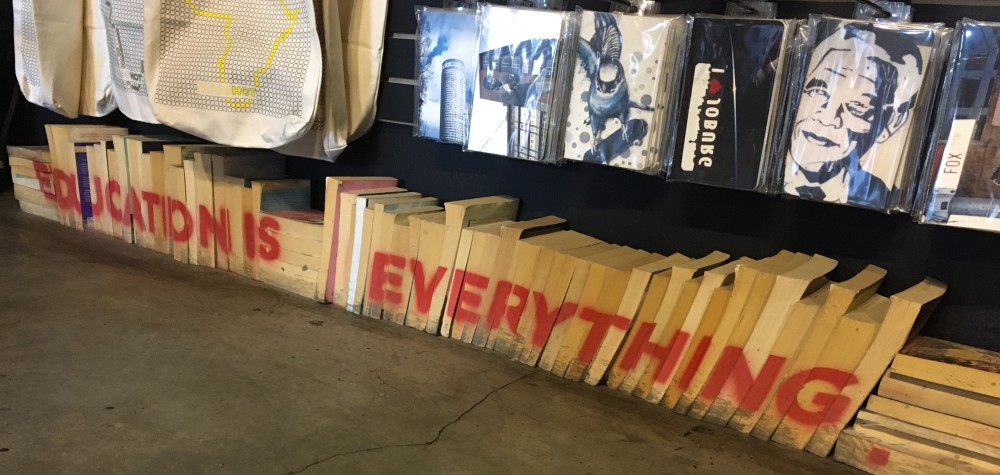We feel privileged to draw our sojourn to a close on the beautiful 157-acre farm that once belonged to Pulitzer Prize-winning author Alex Haley
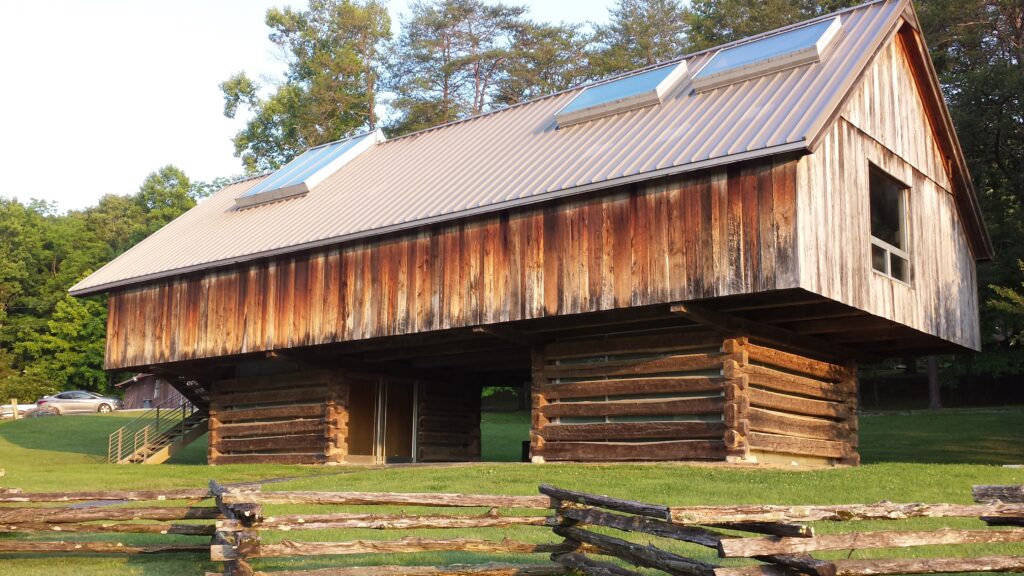
Since 1994 the Children’s Defense Fund has called the Haley Farm home. Nestled in the foothills of the Tennessee mountains near Knoxville, this complex now serves to connect young leaders and activists with the heritage of the struggle for freedom, and hosts policymakers and community builders alike in its quiet, retreat facilities.
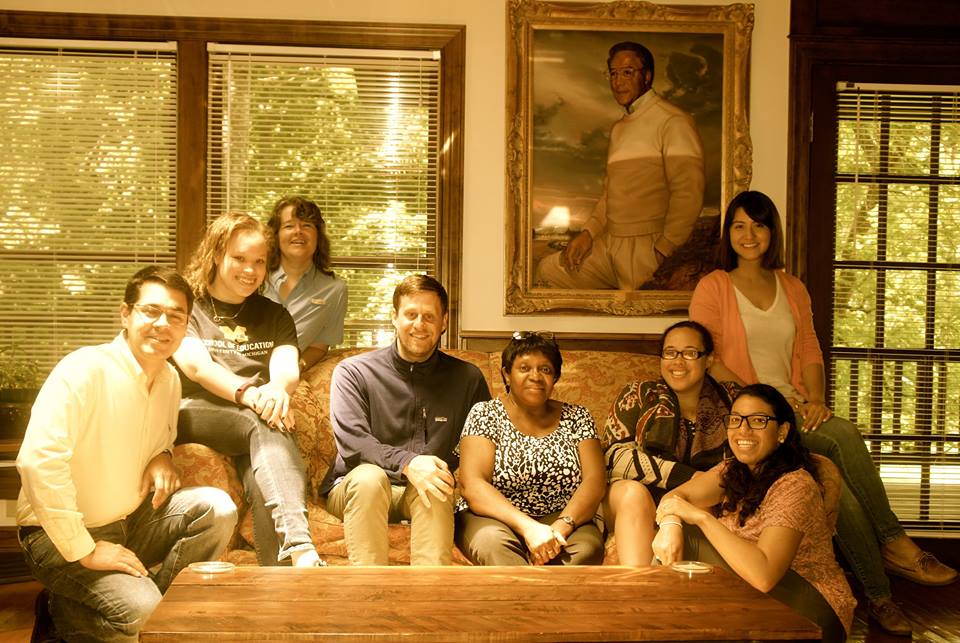
The grounds of CDF Haley Farm include a main meeting lodge, guest cottages, the Langston Hughes Library and the Riggio-Lynch Chapel. The Riggio-Lynch Chapel and Langston Hughes Library were both designed by award-winning Vietnam Veterans Memorial designer Maya Lin.
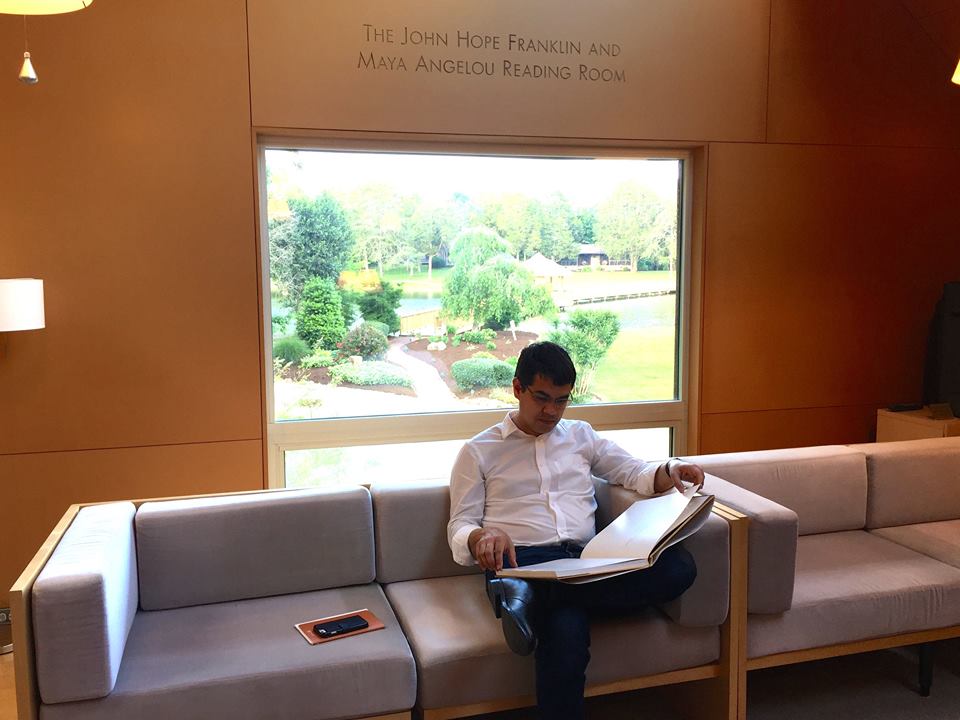
We receive an informative tour of the grounds by Mr. Ken Libby. He brings to life the history of the place, of Alex Haley himself, and illuminates through this narrative the many connections that the work of Mr. Haley and the Children’s Defense Fund has with the people and struggles we have spent the last two weeks learning about. A special treat was the pan-African collection of art, artifacts, and textiles, donated by Maria Nhambu in 2014, which now is distributed throughout the property, including this amazing piece called “Mother Africa.”
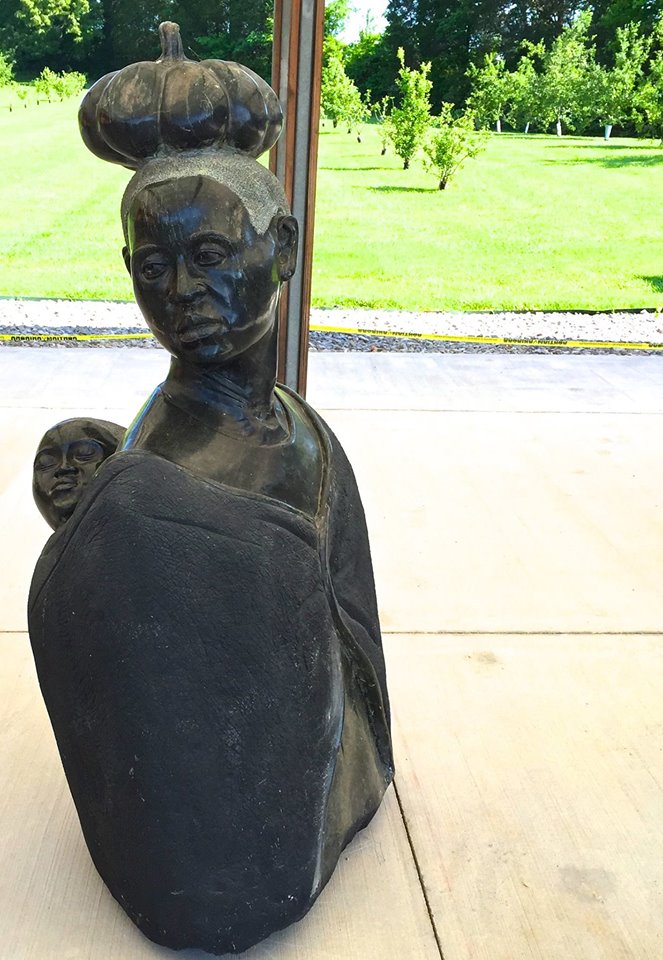
Haley Farm
Two nights at the Alex Haley Farm was exactly what we all needed after a long two weeks on the road. The slight rolling hills, charming cottages, and thoughtful architecture of Maya Lin helped set my mind at ease, and the many references to the Civil Rights movement inspired thoughtful reflection. Weary and deeply moved by the trip, Alex Haley’s former residence was the perfect location to recharge and reflect on all that we had experienced and learned.
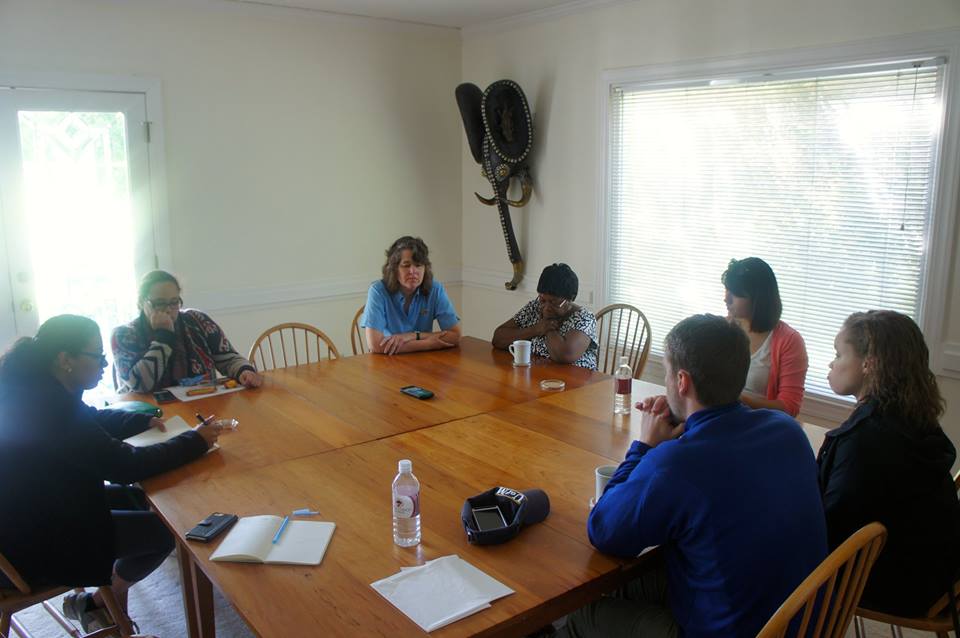
On the farm, you will find rocking chairs scattered about the compound dedicated to civil rights activists. Names that had become all too familiar over the trip – Medgar Evers, Benjamin Mays, Rosa Parks, and of course Martin Luther King to name a few – reminded me of the necessary role sacrifice played in not only the Civil Rights movement, but in all movements for social justice. I found an evening spent in one of these chairs to be relaxing, yet I couldn’t help but be filled with self-doubt. Rocking back and forth, the relaxing sounds of the country evening soothed me, yet the presence of all those who had risked so much in their efforts for justice brought me, inevitably, to question my own commitment.
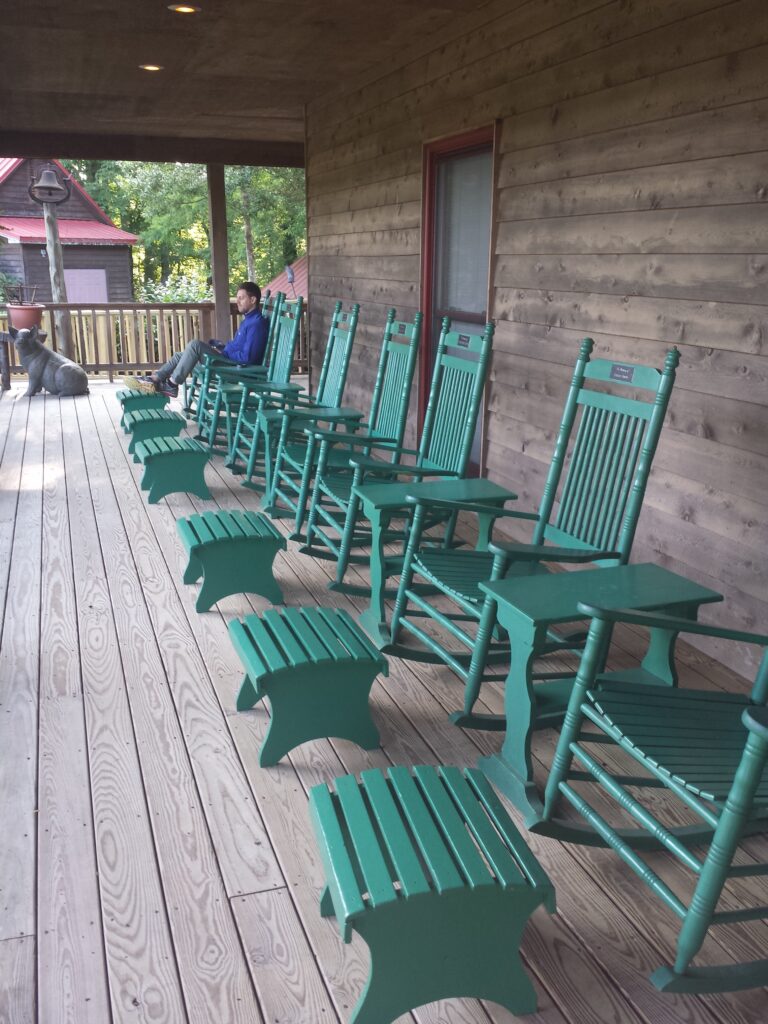
Had I not gone on the HBCU trip, I do not know if I would have ever truly taken to heart Dr. King’s words: “Injustice anywhere, is a threat to justice everywhere.” But I wonder if I have ever truly embraced this ideal and how I must exercise my renewed commitment to it. I am not sure I have the answer yet, but because of this trip I am better off regardless as an answer can never come without a question.
–Steven Cederquist, master’s student
